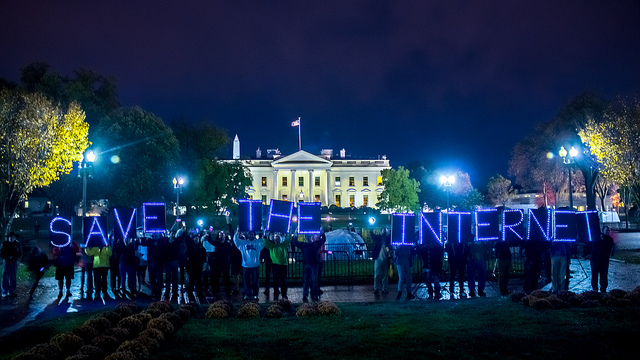
How The Elimination of Net Neutrality Will Hurt Religion
- By Derek Welch --
- 14 Dec 2017 --

Diverse Religious Leaders Have United in Defending Regulations
Today the FCC voted to eliminate Net Neutrality. This carries huge implications for religious speech. In fact, a diverse group of religious organizations has spoken out against overturning the rules. These include the National Council of Churches, the Islamic Society of North America, the U.S. Conference of Catholic Bishops, the National Council of Churches, the Islamic Society of North America, the National Advocacy Center of the Sisters of the Good Shepherd, and the Presbyterian Church (USA) Office of Public Witness.
How The Elimination of Net Neutrality Will Hurt Religion[/tweetthis]
Why do religious organizations support Net Neutrality? First, a quick explanation of what the rules are. Basically, Net Neutrality treats the internet as a public utility. Which means a company cannot block certain websites or charge more for a website. Eliminating Net Neutrality could mean a company can charge you more money for accessing certain websites or censor certain websites.
The FCC is getting ready to overturn #NetNeutrality. If they succeed, ISPs will be able to split the net into packages. This means that you will no longer be able to pay one price to access any site you want. pic.twitter.com/vEkNxPmVlu
— Ro Khanna (@RoKhanna) November 21, 2017
The first issue is the idea of censorship. Religious groups are worried certain types of speech could be censored by companies. If someone has a blog about their interpretation of the Bible, or views about abortion, this website could no longer be found online depending on which internet carrier you have. Because of how few options Americans have in choosing their provider this means you will be beholden to the mandates of a company almost entirely depending on where you live.
Second is the incredible power companies will have in slowing down or speeding up websites. Hate loading times? Imagine if some sites had you waiting for more than a minute because the website could not afford the cost being charged by a provider. This would mean organizations with less money would not be able to compete with larger organizations. Religions feel smaller churches or organizations could not compete with megachurches or organizations with large amounts of money, like the Catholic Church. This could mean religious doctrines with large bank accounts get more publicity and power in the public space. Instead of having a diversity of religious voices about morality or current events it would be dominated by those with the power of the purse. This is not to say organizations with money are inherently bias, but it does create an inherent danger in minimizing the voice of organizations that may provide an alternative viewpoint or one that closely aligns to your personal religious belief. For example, the Jewish online magazine ZEEK published an article stating small online magazines like them would not be able to survive in a world without Net Neutrality.
Third, is religion as a platform for social equality and justice. In the letter, the organizations stated “”Communication is one of God’s great gifts to humanity. Without communication, we could not be fully human.” This means that the social tool of an open internet to support human rights takes priority over any commercial interests that could be gained. It could also hurt the ability for faith leaders to be able to organize charity campaigns or any other organized activity.
There has been massive support from both the public and companies about the importance of keeping the internet open. While the FCC has ruled against it, there are sure to be lawsuits to challenge the ruling, so it will not go into effect immediately.




















